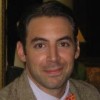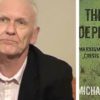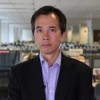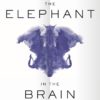078: Arnold Kling on the Hidden Story of How Markets Work, the Mortgage Crisis and How We Pay for Health Care
Arnold Kling is a Mercatus Center–affiliated senior scholar at George Mason University and a member of the  Financial Markets Working Group.
Financial Markets Working Group.
Arnold specializes in housing-finance policy, financial institutions, macroeconomics, and the inside workings of America’s federal financial institutions. He also is an adjunct scholar at the Cato Institute in Washington, DC.
Arnold has testified before Congress on the collapse of Fannie Mae and Freddie Mac
He has authored five books, including Crisis of Abundance: Rethinking How We Pay for Health Care and Invisible Wealth: The Hidden Story of How Markets Work.
Arnold has published articles in the Economist, the Wall Street Journal, the New York Times, the Atlantic, and Forbes, among others, and he blogs at arnoldkling.com/blog/.
Previously, Arnold served as a senior economist at Freddie Mac and a staff economist on the Board of Governors of the Federal Reserve System.
He started Homefair, one of the first commercial websites on the Internet.
Arnold Kling received his PhD in economics from Massachusetts Institute of Technology.
“If you want to live a good lifestyle, you can find hobbies and interests that don’t cost very much. So it’s not hard to enjoy life. But if you want to make yourself miserable, watch politics.” – Arnold Kling
Economics:
In this episode, Arnold mentions and discusses: information rules, economic information, marginal cost of information, advertising, versioning, bundling, Austrian economics, risk measurement, capital, tax, mortgage-backed securities, loans, bubbles, crashes, excess leverage, marked-to-market, economics of health care, labor, capital, land, institutions.
Economists:
In this episode, Arnold mentions and discusses: Hal Varian, Carl Shapiro, Brad deLong, Tyler Cowen, Paul Krugman, Paul Volker, Douglass North, Robin Hanson, Bryan Caplan, James Buchanan, Adam Smith, F. A. Hayek and Robert Solow.
In this episode you will learn:
- about Moore’s Law and what it means for the economy.
- why economists are being lured into the world of start-ups and tech companies.
- about the power of freemium and why companies need to build up trust to create a loyal customer base.
- the difference between versioning and bundling.
- what the future holds for the accessing information online.
- about Arnold’s company online Homefair and how it was one of the first internet companies.
- what really went on behind closed doors at Fannie Mae and Freddie Mac that resulted in their demise.
- why Fannie Mae and Freddie Mac were bailed out.
- how changing the culture at Freddie Mac caused its collapse.
- about the state of health care in America today.
- how Americans are to pay for the higher costs of health care.
- about the fibre-bubble in the 1990s.
- why we are richer today than a couple of hundred years ago.
- why ideas are the foundation to economic growth and prosperity.
- why nations like Cuba and North Korea are poor (bad institutions).
- about the work being done at George Mason University.
Where to Find Arnold Kling:
Books:
- Crisis of Abundance: Rethinking How We Pay for Health Care by Arnold Kling
- Invisible Wealth: The Hidden Story of How Markets Work by Arnold Kling
- Information Rules: A Strategic Guide to the Network Economy by Carl Shapiro and Hal Varian
- The Revolt of the Public and the Crisis of Authority in the New Millennium by Martin Gurri
Links:
- 23andMe: www.23andme.com
-
- View reports on over 100 health conditions and traits
- Find out about your inherited risk factors and how you might respond to certain medications
- Discover your lineage and find DNA relatives
Podcast: Play in new window | Download




 068: Daron Acemoglu on Why Nations Fail and Why Inequality Exists Between Countries
068: Daron Acemoglu on Why Nations Fail and Why Inequality Exists Between Countries 074: Peter Leeson on The Invisible Hook: The Hidden Economics of Pirates
074: Peter Leeson on The Invisible Hook: The Hidden Economics of Pirates 092: Graham Brownlow on Rent Seeking, Cliometrics and the Economics of the DeLorean
092: Graham Brownlow on Rent Seeking, Cliometrics and the Economics of the DeLorean 157: François Allisson on Value and Prices in Russian Economic Thought
157: François Allisson on Value and Prices in Russian Economic Thought 081: Julie Nelson on the Importance of Ecology in Economics and the Misconception of Gender Roles in the Economy
081: Julie Nelson on the Importance of Ecology in Economics and the Misconception of Gender Roles in the Economy 082: Peter Boettke on Smith and Keynes and Why We Should Be ‘Living Economics’
082: Peter Boettke on Smith and Keynes and Why We Should Be ‘Living Economics’ 085: Michael Roberts on Understanding Karl Marx and His Thinking on Capitalism
085: Michael Roberts on Understanding Karl Marx and His Thinking on Capitalism 076: Greg Ip on Foolproofing the Economy and Why Stability is Destabilizing
076: Greg Ip on Foolproofing the Economy and Why Stability is Destabilizing 122: Robin Hanson on The Elephant In the Brain: Hidden Motives in Everyday Life
122: Robin Hanson on The Elephant In the Brain: Hidden Motives in Everyday Life 108: Steve Horwitz on Spontaneous Order, the Microfoundations of Macroeconomics and Three Economic Myths
108: Steve Horwitz on Spontaneous Order, the Microfoundations of Macroeconomics and Three Economic Myths